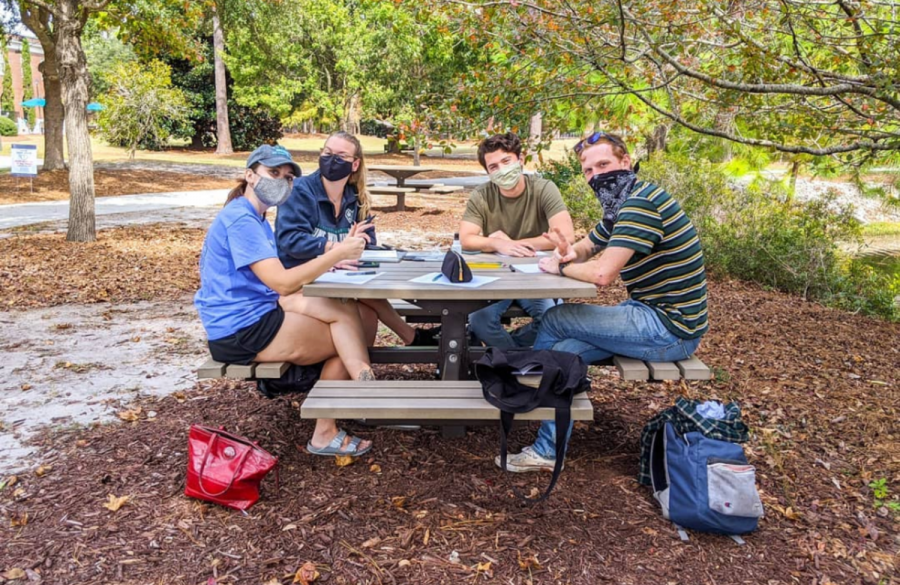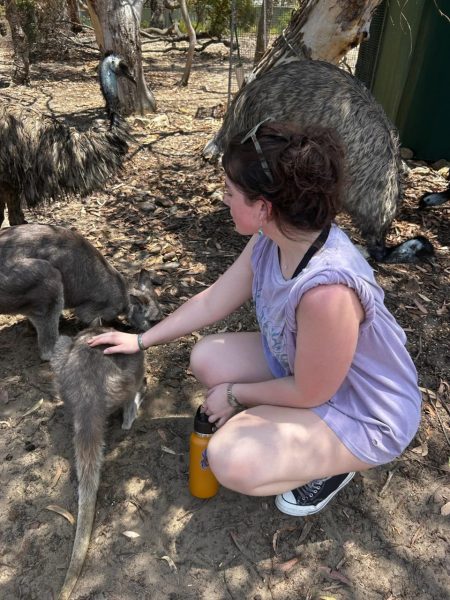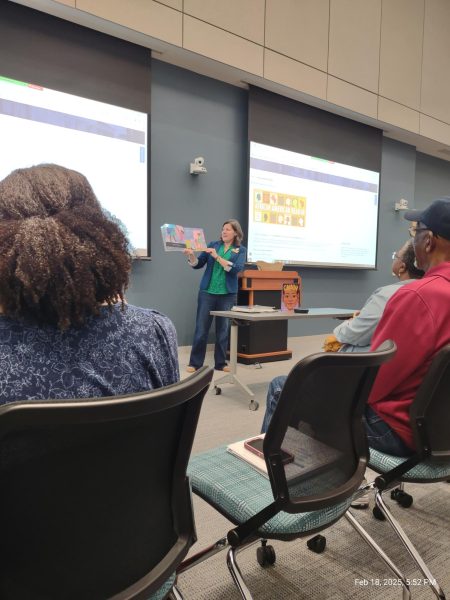The Gardening club and the 350 club want UNCW to divest from fossil fuels
A look into two of the greenest clubs on campus
Editor’s Note: This article was updated on April 28, 2021, to reflect the correct name of the Gardening Club’s founder, Julianna Tresca. The Seahawk apologies for the error.
UNCW (University of North Carolina at Wilmington) is home to many wonderful student-run organizations. Two of those organizations that have an environmental focus are the 350 Club and the Gardening Club.
Founded in 2018, the 350 Club bases its mission on divestment. They want to encourage the university and UNCW board of trustees to divest from fossil fuels. The board of trustees currently uses endowment funds from donor gifts to pay for fossil fuels, and the 350 Club is working to end that practice.
“Our mission is specifically to pull out investments that already exist in the fossil fuel industry. I think that really sets us apart from other groups and organizations… We are advocating specifically to divest rather than just encouraging new investments in renewable and greener energy,” said Treasurer Daniel Gee.
The 350 Club uses a very direct approach in advocating for their cause. Before the COVID-19 pandemic, they hosted a walkout that was attended by over 500 students. They also helped pass an Student Government Association (SGA) resolution in 2019 and pushed for a Faculty Senate vote that supports the divestment of fossil fuels. They are currently waiting for the board of trustees to put this on the agenda.
“I wouldn’t say one of the only groups…but we’re definitely, out of the environmental clubs on campus, we’re one of the only groups that’s in your face about what we’re doing,” said Vice President Jessica Scudella.
“We’re trying to enact change at our school level, and when you’re trying to enact change you get the attention of the people around you. We’re trying to get the attention of the chancellor, we’re trying to get the attention of the board of trustees, we’re trying to get the attention of the important people making decisions at school, so I think that that’s definitely something that sets us apart and makes us special.”
The Gardening Club started about a year and a half ago, but really got going last spring. However, the COVID-19 pandemic put a damper on their progress. Luckily, the garden beds that the club tended are off-campus, so founder Julianna Tresca was able to keep an eye on the gardens during quarantine.
This year they were able to get off to a good start because they had the access they needed to get the funding and the seedlings. The club was recently given the TGIF grant from the sustainability department and all this grant money has been put towards rebuilding the sustainability garden by Friday Hall. They are currently building a raised bed that is ADA wheelchair compliant and they are going to try to build more of these where the compost pile is now.
Tresca stated:
“We really are a community service-based organization. That was the main core for creating the student org. We’ve been collaborating with different food pantries, Hawks Harvesting food pantry, Food Bank in southeastern North Carolina in Downtown Wilmington. And just being able to see incoming freshmen and sophomores, people to find a place with the Garden Club, especially with everything that’s been going on with COVID [-19] it’s not easy for people that are just coming in to make friends. So being able to get outside in this environment, you will get some sunshine, get your hands dirty and meet some new people and learn a little bit more about food insecurity and how it’s impacting the campus community. I think it’s all been beautiful watching it come together in that aspect, so I think that’s what makes us pretty special.”
The Gardening Club is community–based. They have collaborated with different food pantries, food banks, and Hawk’s Harvest to help with food distribution.
“At least 15% of UNCW students are food insecure and don’t know where their next meal is coming from. The Hawks Harvest student food pantry and the UNCW sustainability garden are trying to change that,” said Tresca. (To learn more about this visit this website).
These two clubs have collaborated a few times and hope to do more together in the coming semesters. The 350 Club has helped the Gardening Club build and paint some of the raised beds and they both hope to host an event together this fall.
To get involved with the 350 Club you can go to their meetings which are held via Zoom every other Monday at 7 p.m. They also host letter writing campaigns to try and sway the public against fossil fuels and towards greener sources. The 350 Club also hosted a tree planting event this month and plan events like virtual yoga that are open to the public. The club sends out invites to their members and the people on their email list and advertises on Instagram.
There are three ways of becoming involved with the Gardening Club: you can go to WaveLink and join their email list, follow them on Facebook and Instagram where they will be posting about different events they are hosting or you could just stop by the raised beds. Someone with the Gardening Club is there multiple times a week so there is a good chance that you will meet people from the club, see how broccoli and mustard greens are grown and see where your food comes from.












